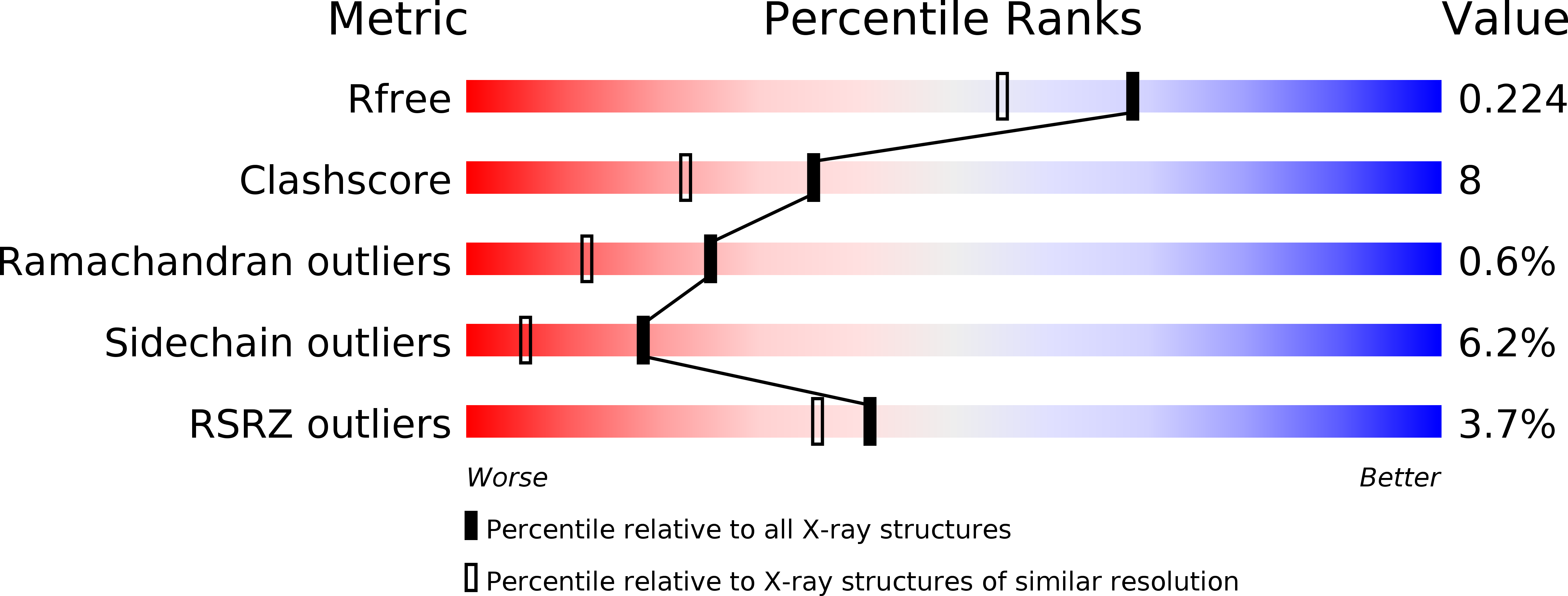Crystallographic Evidence for a Domain Motion in Rat Nucleoside Triphosphate Diphosphohydrolase (Ntpdase) 1.
Zebisch, M., Krauss, M., Schafer, P., Strater, N.(2012) J Mol Biology 415: 288
- PubMed: 22100451
- DOI: https://doi.org/10.1016/j.jmb.2011.10.050
- Primary Citation of Related Structures:
3ZX0, 3ZX2, 3ZX3 - PubMed Abstract:
Nucleoside triphosphate diphosphohydrolases (NTPDases) are a physiologically important class of membrane-bound ectonucleotidases responsible for the regulation of extracellular levels of nucleotides. CD39 or NTPDase1 is the dominant NTPDase of the vasculature. By hydrolyzing proinflammatory ATP and platelet-activating ADP to AMP, it blocks platelet aggregation and supports blood flow. Thus, great interest exists in understanding the structure and dynamics of this prototype member of the eukaryotic NTPDase family. Here, we report the crystal structure of a variant of soluble NTPDase1 lacking a putative membrane interaction loop identified between the two lobes of the catalytic domain. ATPase and ADPase activities of this variant are determined via a newly established kinetic isothermal titration calorimetry assay and compared to that of the soluble NTPDase1 variant characterized previously. Complex structures with decavanadate and heptamolybdate show that both polyoxometallates bind electrostatically to a loop that is involved in binding of the nucleobase. In addition, a comparison of the domain orientations of the four independent proteins in the crystal asymmetric unit provides the first direct experimental evidence for a domain motion of NTPDases. An interdomain rotation angle of up to 7.4° affects the active site cleft between the two lobes of the protein. Comparison with a previously solved bacterial NTPDase structure indicates that the domains may undergo relative rotational movements of more than 20°. Our data support the idea that the influence of transmembrane helix dynamics on activity is achieved by coupling to a domain motion.
Organizational Affiliation:
Institute of Bioanalytical Chemistry, Center for Biotechnology and Biomedicine, Faculty of Chemistry and Mineralogy, University of Leipzig, Deutscher Platz 5, 04103 Leipzig, Germany.





















